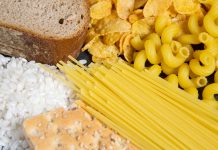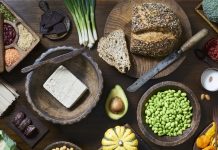In late 2019, an explosive new documentary, Game Changers, was dominating fitness industry headlines. Boasting the approval of Arnold Schwarzenegger, Novak Djokovic and Lewis Hamilton, the documentary claimed that peak athleticism could be attained on a plant-based diet—combatting longstanding assumptions about eating meat for muscle growth.
The documentary debuted around a year into a new fitness regime I had developed for myself. As an ectomorph with a fast metabolism, struggling to gain weight, I quickly realised that consistent daily training was only a part of fitness. As a result, I began an intense high-protein diet combined with large amounts of animal protein.
My daily meals began to exceed the recommended daily protein intake—sometimes involving multiple chicken breasts each day. I avoided high-fat foods like beef and still achieved daily intakes of carbohydrates and calories. As a result, I was able to increase my weight by more than 15 kilograms, while still maintaining a lean 11 per cent of body fat.
However, there were drawbacks to eating so much meat. With each meal followed a feeling of heaviness, and an almost daily challenge with constipation. Further research helped me find that this was due to a lack of fibre in my diet—meat contains none. I started introducing more fibre-rich vegetables, though this didn’t seem to help. The ratio was too far out of balance.
After Game Changers was released, I was challenged to watch it by a number of people who knew about my training . They reassured me it wasn’t another anti-meat campaign designed by agenda-driven vegans. They added it wasn’t focused on depicting the horrific state of animals before they are slaughtered, but rather promoted the benefits of eating plants.
I finally watched the documentary on Netflix while on a work trip to New Zealand. The film challenged many of the things I had researched (and later reading suggested that Game Changers did in fact exaggerate some details while ignoring others). I was intrigued enough to do some more digging.
An ancient strategy
One of my first follow-up points of study was the man who inspired my name. In chapter 1 of the Bible’s book of Daniel, the title character and his friends are brought before King Nebuchadnezzar to be trained for royal service. The Bible says, “The king assigned them a daily amount of food and wine from the king’s table” (Daniel 1:5). Scholars suggest the royal food provided to the young trainees was most likely meat-based. Daniel pleaded to instead trial a plant-based diet and prove to the king they would all be stronger: “Please test your servants for 10 days: Give us nothing but vegetables to eat and water to drink” (verse 12).
Much like Game Changers, in which athletes trialled a plant-based diet and found an increase in strength, muscle recovery and testosterone levels, Daniel and his three fellow trainees experienced benefits: “At the end of the 10 days they looked healthier and better nourished than any of the young men who ate the royal food” (verse 15).
It must be said that though I was inspired by the Daniel of the Bible, the book doesn’t actually decry meat. In fact, Leviticus 11 outlines what we should and shouldn’t eat. The chapter is even more pertinent when you consider verse 18, advising against eating bats and other “unclean” animals. And here we are in the middle of a pandemic, when scientific reports are suggesting Covid-19 entered the human population when people ate bats or pangolins. Though thousands of years old, the Bible still has the answers for our modern eating habits.
The experiment, the results
Like Daniel in the Bible, I had a new-found determination to test this theory with a three-month trial akin to the one my ancient namesake underwent. Rather than switching to these foods because of moral outrage or a sense of elitism, I wanted to critically assess whether plants could be just as effective as meat for muscle-mass gain.
To be clear, I didn’t shift to a vegan diet, which is the stringent avoidance of any animal-derived foods. A plant-based diet, in contrast, allows for some leeway. While I was already avoiding dairy due to intolerances, I don’t have a moral problem with eating eggs. So, while this new diet would largely avoid eggs, I would allow myself to eat them if circumstances required. I also would continue eating honey as normal.
A few weeks in, a few things became apparent. I felt a lot lighter, but I also felt more tired and sometimes very hungry. To compensate for this, I began eating larger meals, which increased grocery bills. And further research concerning my tiredness indicated that I needed to supplement with vitamin B12, which doesn’t occur naturally in plant foods, but is a key nutrient for the body’s energy production.
Possibly due to feeling lighter after meals, my training strength increased. I started finding it easier to progressively increase the weights I was lifting and the recovery time in between sets became shorter.
I was also surprised by the number of alternatives to meat. There was something exciting about experimenting with new combinations of tofu, beans, legumes, nuts and seeds. On one date, my girlfriend and I visited one of my favourite Afghan restaurants; a place I often frequented for their meat dishes. To my surprise, they did serve a gluten-free/vegan dish involving chickpeas. It now ranks among my all-time favourite dishes.
And then there was the weight aspect, the very reason I started a plant-based diet. One of my friends who made similar changes to his diet at around the same time reported a four kilo weight loss in a few months—the opposite of the effect I intended. However, with consistent eating and training, I have managed to maintain weight, if not gain a few hundred more grams of mass.
Diets are a peculiar thing because we’re all on one, even if it’s an “eating whatever” diet. I can’t recommend the plant-based diet for everyone, because I’m not a qualified nutritionist. As someone who’s been on a few different diets for specific outcomes, my sense is that there’s no “fix all” solution for health problems.
What I can recommend for those considering eating plants, however, is to dare to be a Daniel—give it a try, whether it be for 10 days or three months. (If you’re in a vulnerable state of health, seek medical advice first.) The psalmist David probably didn’t intend it in this context, but he wrote, “Taste and see that the Lord is good” (Psalm 34:8). And I can safely say that, for me, it has been good indeed.
Daniel Kuberek is fond of tight shirts and is often observed examining his biceps during lulls in conversation. He is assistant editor for Signs of the Times magazine and lives in Sydney, Australia. A version of this article first appeared on the Signs of the Times Australia website and is republished with permission.



















